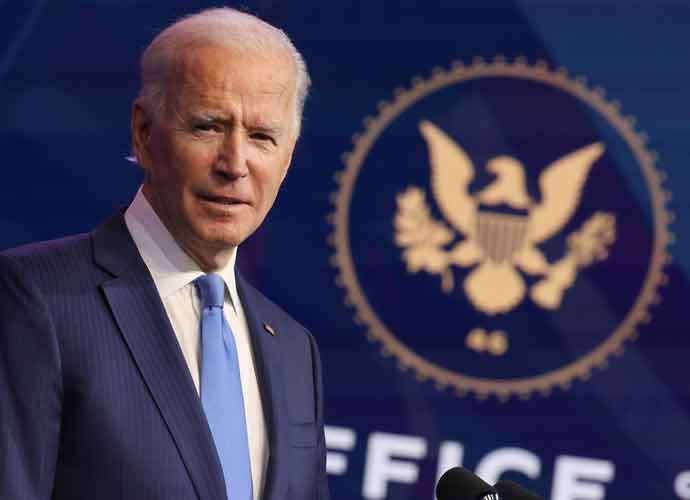

WILMINGTON, DELAWARE - DECEMBER 11: U.S. President-elect Joe Biden speaks during an event to announce new cabinet nominations at the Queen Theatre on December 11, 2020 in Wilmington, Delaware. President-elect Joe Biden is continuing to round out his domestic team with the announcement of his choices for cabinet secretaries of Veterans Affairs and Agriculture, and the heads of his domestic policy council and the U.S. Trade Representative. (Photo by Chip Somodevilla/Getty Images)
Silencing a week of speculation and rumors, President Joe Biden on Wednesday laid out his administration’s new, sweeping infrastructure plan aimed at reviving America’s working-class cities and rural communities.
The $2.25 trillion plan will be executed in four parts over eight years, dedicating several billion dollars to initiatives from health care to the environment. The largest set sum is $650 billion dedicated to widening Americans’ access to clean water and cheap broadband Internet. Another $620 billion is set aside for transportation, more than doubling past investments into public transit. $174 billion will be directed to electric vehicle initiatives. $580 billion will be dedicated to strengthening United States manufacturing and then several other parcels are put aside for specific industries like $50 for semiconductor manufacturing and another $40 billion to increase domestic research. As for raw infrastructure, a record $20 billion is being set aside for new highways and roads to “reconnect,” according to Biden, neighborhoods that have been cut off from industry.
To supplement the increased spending, Biden and his team plan to amend corporate income tax, which was slashed under former President Donald Trump, raising it from 21% to 28%. Also, the White House will implement a 21% minimum tax on global corporate earnings. These changes alone are “fully paying for the investments in this plan over the next 15 years.”
“These public investments are among the highest-return investments in terms of spurring private investment,” National Economic Council Director Brian Deese said in an interview Tuesday. “Let’s have a competitive tax system that encourages domestic investment,” also lamenting the “race to the bottom internationally” on business taxes.
Subscribe to our free weekly newsletter!
A week of political news in your in-box.
We find the news you need to know, so you don't have to.
Republicans are expected to vote against the Democrat-led bill no matter what. Biden, however, has maintained consistent outreach to GOP lawmakers and has been holding briefings on the plan.
Biden and Senate Majority Leader Chuck Schumer (D-New York) may not need their votes. Schumer may introduce the bill as another budget reconciliation measure in order to avoid a silent filibuster.
After the federal government lifted its pandemic-era leniency measures on student loan payments, the Department…
The Trump Administration’s claims that cuts to federal contracts made by Department of Government Efficiency…
A recent study from KFF found that routine vaccination rates among kindergarteners have declined sharply,…
Rick Perry, the former Texas governor and energy secretary under President Donald Trump, has become…
On Wednesday, President Donald Trump suggested he could bypass congressional approval to extend the federal…
The Department of Justice (DOJ) has launched a federal grand jury investigation of Letitia James,…